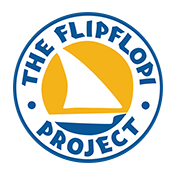Accelerating the Plastic Revolution: Our 2022 annual impact report is out
2022 was one of our most impactful to date – starting with our 3rd ‘science-at-sea’ expedition, before opening the doors to Lamu’s first recycling centre as well as our Heritage Boat Building Training centre.
Through the prestigious 3-year grant from UKAID's Sustainable Manufacturing and Environmental Pollution Program (SMEP), we have recovered and recycled over 90,000kgs of plastics, piloted our 12-week training course, manufactured high grade plastic lumber and created prototypes for marketable products rooted in heritage including traditional Lamu furniture, and, of course, new plastic boats.
We also made progress with advocacy efforts around our proposed Bill to ban unnecessary Single Use Plastics across the East African Community led by ALN, who presented the bill at CHOGM, Africities and UNCTAD.
Today, we are proud to be launching our 2022 annual report which outlines the impact we have made together with our partners in a year.
Here are a few of the highlights:
Established a community based network which led to 90,700 kgs of recyclable plastic collected across the Lamu archipelago in just 7 months.
Created a variety of prototype products from plastic lumber including new artisanal boats, traditional furniture, benches, doors and hand carts
Prevented over 600,000 single-use PET bottles from ending up in landfills, open burning or the ocean
We now have 14 full-time employees (43% female)
10 students participated in the 12 week pilot course at the Heritage Boat Building Training and Plastic Recycling Centre
Led by ALN, we took our draft Bill calling for an end to unnecessary Single Use Plastics (SUPs) to policy-makers in the East African Community including at Africities and CHOGM 2022
Over 15,000 people signed our petition calling for a regional ban of unnecessary SUPs
Our partners in Mwanza, Tanzania and Kampala, Uganda accelerated their community-programmes: Plastik Talks (Kampala) established a functioning waste-sorting and educational home, bringing in 85 households into their collection scheme, while EMEDO Women's Group (Mwanza), successfully piloted their household waste segregation scheme across local neighbourhoods and are now scaling.
You will see we have strengthened our organisational plan with 5 key strategies for success against our ‘full-systems approach’ of Innovating, Educating and Influencing in order to fulfil our mission to use heritage boat-building and plastic innovation to make plastics part of a circular economy while calling for an end to unnecessary single-use plastic.
In summary, this year, we are focusing on
Making Lamu a sustainable operation - transitioning from pilot stage to scaling up production, to ensure we serve the community more broadly, create more plastic products, boats, and remove more plastic from the oceans.
Starting prototypes and engineering of Flipflopi Kubwa, the big one, that will be triple the size of Flipflopi.
Continuing to support our community-partners around East Africa and artivism campaigns to raise awareness and educate consumers
Sharing the knowledge we have learned to others, including rolling out more courses at the training centre
Continuing our advocacy work to call for an end for unnecessary single-use plastics
You can learn more about our theory of change, and full-systems approach here:
Our mission through heritage boat building, to bring previously excluded communities into the circular economy, while continuing in earnest to campaign for an end to the production of unnecessary single-use plastics.
We want to take this time to thank our loyal supporters for their continued support and belief in our beautiful multicoloured dhow and the impact it can bring to the world.



